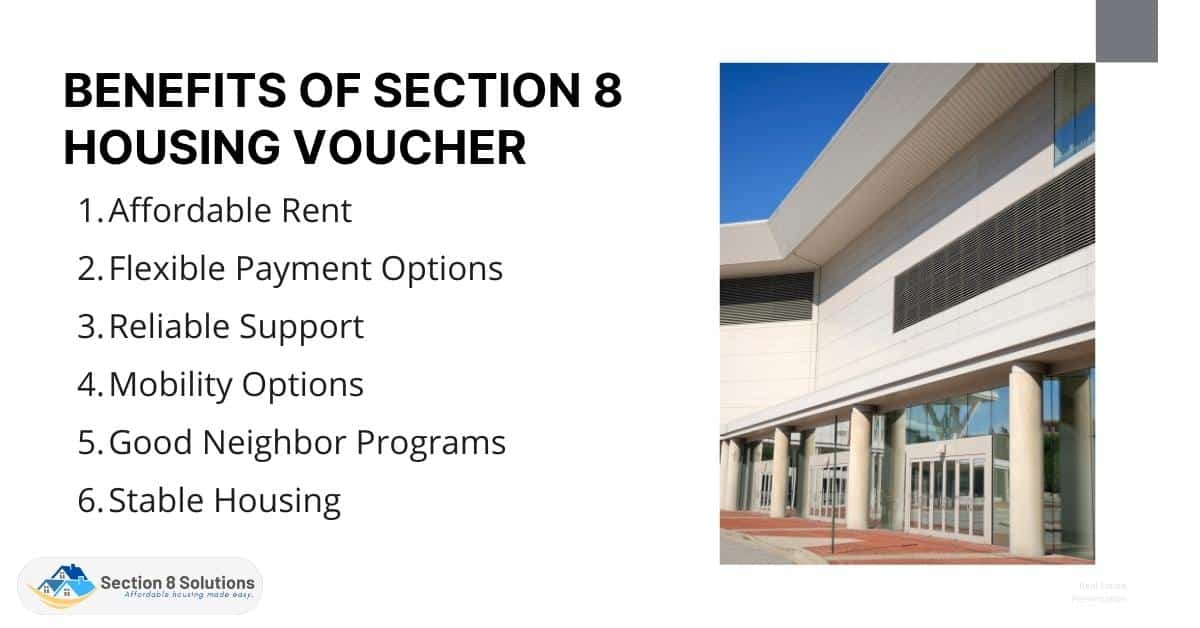Are you struggling to afford to house? Are you curious about the Section 8 Housing Voucher program but not sure if it’s right for you? You’re not alone. Many individuals and families face difficulties when it comes to securing affordable housing, and Section 8 can be a valuable resource for those who qualify.
In this blog post, we’ll guide you through the process of determining whether applying for a Section 8 voucher is a good choice for you. We’ll cover eligibility requirements, benefits, challenges, and how to research local housing options.

Should You Apply for a Section 8 Housing Voucher?
Researching your eligibility for a Section 8 housing voucher is the first step in determining if this program can help you affordably find housing. Contact your local public housing authority to learn if you qualify based on your income and household size. You may also reach out to a nonprofit housing organization in your area for assistance.
A qualified professional can help you understand the options available and provide guidance throughout the application process. This will give you the best chance of obtaining a valid voucher and finding an affordable place to live.

Determine Eligibility
To determine whether you are eligible for a Section 8 housing voucher, you will need to provide proof of your income and other documents. Your local public housing agency will review this information to confirm your qualification for the program, allowing you to find quality housing at an affordable rate.
Income requirements
Section 8 Housing Vouchers are a form of rental assistance for households with low incomes. To qualify, applicants must meet certain income guidelines. These usually involve gross income requirements, asset limits, and the program’s specific eligibility criteria.
Those who rent under this program must pay 30% of their monthly adjusted income towards their rent and utilities. This figure is subject to change based on the household’s annual review. Eligibility for this program is determined by local public housing agencies using criteria established by HUD.

Household size
Obtaining a Section 8 Housing Voucher is subject to the size of one’s household. To qualify, a household must typically include at least one eligible adult and no more than eight people. Any additional or shared members must seek approval from their Public Housing Agency.
Different family sizes can also affect an individual’s payment standard rate for their vouchers. Individuals living alone may receive higher benefits than those with larger households.
Citizenship or legal residency status
Securing a Section 8 Housing Voucher often requires that applicants have proof of citizenship or legal residency status to ensure eligibility for the program. To be approved for a voucher, individuals must first meet certain requirements, such as income and urgency criteria.
Furthermore, these qualifications may vary from state to state, but typically require documentation of lawful presence in the U.S. Thus, if an individual qualifies for the program, they must supply documents that demonstrate their citizenship or legal residency.

Criminal background checks
Section 8 Housing Vouchers are a valuable asset for those in need of low-cost housing, but it is important to ensure the safety of voucher-holders. To do this, many local housing authorities require criminal background checks on tenants.
These checks confirm identities, provide a tenant’s history, and reveal any open warrants to help minimize risks associated with renting out property. There is a cost to conducting the checks, but their results can protect both landlords and tenants.

Benefits of Section 8 Housing Voucher
Section 8 housing vouchers are a great solution for low-income families and individuals seeking to rent quality housing. The program provides economically disadvantaged households with important financial assistance to gain access to safe and affordable housing.

1. Affordable Rent – Section 8 vouchers allow tenants to pay no more than 30% of their monthly adjusted income towards rent and utilities, allowing them to afford housing in quality locations.
2. Flexible Payment Options – The Section 8 program offers a variety of payment options, such as direct deposit or mailed checks, so that tenants can easily receive their rent payments.
3. Reliable Support – Section 8 voucher renters are supported by a network of local public housing authorities, nonprofit organizations, and other resources dedicated to providing assistance throughout the rental process.
4. Mobility Options – Voucher holders may choose to move within or outside of their jurisdiction with their vouchers, which gives them more flexibility in their housing choices.
5. Good Neighbor Programs – Section 8 vouchers give tenants access to programs designed to help voucher holders with their rental expenses, such as tenant-based rental assistance and Good Neighbor Next Door (GNND) discounts for designated properties.
6. Stable Housing – Tenants who use Section 8 vouchers are more likely to stay in their housing, leading to increased stability and a better quality of life.
Research Local Section 8 Housing Options
Researching local Section 8 housing options is a great way to find an affordable rental that is available in your area. Section 8 housing is a federally funded program that helps low-income households afford their rent. It covers the difference between a tenant’s contribution and the cost of the rent.
Knowing what local housing programs are available can help you identify which properties may qualify for a subsidy so you can save time during your search and narrow your focus to finding the perfect home placement.
Start by searching online for resources in your neighborhood, as well as getting in touch with real estate agents who specialize in Section 8 rentals. They will be able to provide more detailed information specific to your area about things like availability, eligibility requirements, and more.

Consider Potential Challenges
Investigating potential Section 8 housing options can be an intimidating process. Prospective tenants need to make sure they understand the requirements and restrictions of each option, from voucher program eligibility to rent limits. Investigating all possible housing choices requires research that could affect lifestyle.
Additionally, they may need to become familiar with the appeal process in order to avoid eviction due to dissatisfaction with the program. With all these points in mind, it is often beneficial for individuals looking at Section 8 housing options to gain access to support services.

Weigh the Pros and Cons
Making the decision to rent using Section 8 housing can be exciting and daunting. It is important to assess both the positive and negative aspects of Section 8 housing before settling on a plan. It allows renters access to housing they could not otherwise afford while providing landlords with a reliable stream of income.
However, there are drawbacks such as long wait lists and potential discrimination. Knowing the advantages and disadvantages of Section 8 housing will help renters weigh the pros and cons and make an informed choice.
| Pros | Cons |
|---|---|
| Provides housing for very low-income families and individuals | The waiting list is often long and applicants may have to wait for several years to be found eligible for the program. |
| Offers rent subsidies that help make paying rent more affordable | Tenants must remain in good standing with their landlord or they could risk being evicted from the program. |
| Property owners receive regular payments directly from the government to cover tenant subsidies | Landlords are not able to increase rent without approval from HUD (Housing and Urban Development). |
Conclusion
Section 8 Housing Vouchers can be an incredibly valuable resource for those in need of affordable housing. From researching eligibility requirements to evaluating potential challenges, it is important to understand what is involved before making the decision to apply for a voucher. By doing so, individuals and families can make informed decisions about their housing choices and have access to quality, affordable housing.
For those looking to explore Section 8 Housing Vouchers as an option for their future home, be sure to contact your local public housing agency or a nonprofit organization for help throughout the process. With their support, you can have access to safe and affordable housing in no time.












